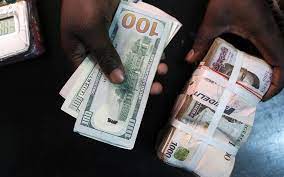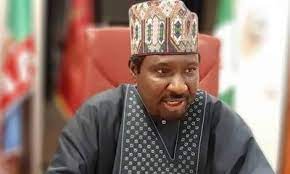The United Nations (UN) has endorsed 2019 General elections as peaceful, commending the Independent National Electoral Commission for conducting elections of such magnitude in spite of the expected challenges associated with the exercise.
Special Representative to the Secretary General to the UN for West Africa and the Sahel, Dr Mohamed Ibn Chambas, made this endorsement Thursday in Abuja during a visit to the INEC headquarters.
He stated that UN wished to strengthen the relationship with INEC and to be part of the post 2019 election review.
He said. “Many of us watched with satisfaction the deliberations involving the senate and the House of Representatives and the serenity and indeed one can say that the atmosphere in the processes were further steps towards consolidating democracy in Nigeria.”
“We are interested in the work of the INEC during the election season and also off election seasons. In that regard, we once again commend the leadership, the chair, the Commissioners, the federal Commissioners and the state level, leaders of INEC for the yeoman’s job they have done during the recent elections, in spite of all the challenges which expected in an exercise of this magnitude.
“And If yesterday (Wednesday) we were all happily celebrating democracy day, I should say it stands to be peaceful election in this great country during the general elections,; elections that ushered in a new dispensation, second term of his Excellency Muhammadu Buhari who was sworn in on 29th May…”
Chambas who stated that the UN has institutional relationship with INEC not just during the elections season but also during the off seasons, said the world body was interested in a number of issues “such as political parties’ number, mode of registration, internal democracy, accreditation of party agents” amongst others.
While giving a regional perspective, the former ECOWAS secretary general said: “The number of political parties in certain elections in our West Africa and Sahel sub-region poses a challenge recently and it is not only here in Nigeria that we need to look at the issue of number of political parties, their mode of registration etc.”
He however stated that Senegal, when faced with the same challenge later found a manner of dealing with it., While the Republic of Benin, when confronted with as many as 249 registered political parties, also tried to find their way to handle this issue.”
On the number of parties that contested elections in Nigeria, Chambas said: “In the last election in this country, many of you will recall that there were 73 presidential candidates, I am not talking about registered political parties but presidential candidates. With the usual Nigerian people some people even referred to the ballot paper as table cloth on account of its length and breadth.
“Of course that also has its only challenges and for countries in our sub-region where majority of our fathers, uncles and relations are still .. presenting them with such long list of candidates, sometimes distract from the quality of the process and talking about informed decisions by the electorate.
“So these are legitimate issues that we want to be part of this conversation that has being initiated by INEC Chairman. We would also be interested in the issue of inclusivity involving the participation of youth, women and persons living with disabilities in elective offices in particular and in the electoral process in general,” the UN envoy said.
While calling for more inclusivity in the electoral process, Chambas said: “But I think we all agree as indeed in a great country like Nigeria, gender issue and gender representation in both houses can be improved and should be improved upon. Similarly as this country took the initiative to pass the legislation of not too young to run, I think that the youth representation can also be improved upon. That is why UN, we will be interested in this dialogue He also commended the commission for the cooperation that UN enjoy.Responding, INEC chairman Prof Mahmood Yakubu pledged the commission would soon engage the leadership of the 9th National Assembly with a view to strengthening the legal framework of the nation’s electoral system. Nigeria’s
While disclosing that the commission is currently doing a review of the 2019 general elections, he expressed optimism that the review would be concluded in the next two months, so as to arm it with useful lessons that would guide relevant stakeholders working to improve on the legal framework.
The INEC Chairman regretted that a new legal framework could not be developed before the last general elections.
“We look forward to any suggestions that you may have for improving the electoral process in Nigeria as we prepare for future elections. In particular, we need to focus attention on the electoral legal framework among several areas of reform.
“Indeed, long before the 2019 general elections, the Commission submitted detailed proposals for the amendment of our electoral laws in the light of our experience from the 2015 general elections and numerous off-season elections. We had a useful interaction with the 8th National Assembly.
“We also submitted extensive proposals for the improvement of the electoral legal framework for its consideration. We were assured by the leadership of the last National Assembly that work on the electoral legal framework will be concluded by December 2016. Unfortunately, the process dragged on for so long and became even more difficult to conclude as the general elections approached.
“I want to assure Nigerians that, as always, we will start early. We hope to conclude the ongoing review of the 2019 general elections in the next two months. These reviews have become standard practice by the Commission, and involve all stakeholders across the electoral process. Consequently, we have commenced debriefings with all our field staff to learn from them the successes and challenges we all faced in the planning and implementation of the general elections.
“We will also hold extensive meetings with political parties, civil society, security agencies, the media as well as other stakeholders as part of the Commission’s commitment to the continuous improvement of the electoral process in Nigeria. Immediately thereafter, we shall engage with the leadership of the 9th National Assembly. There is so much work to do but little time ahead of us”, he stated.



